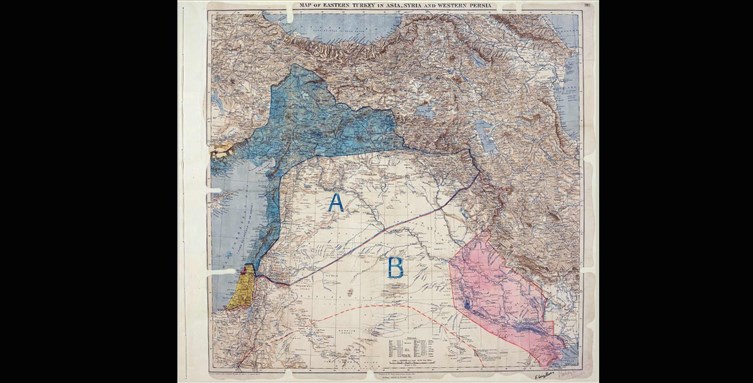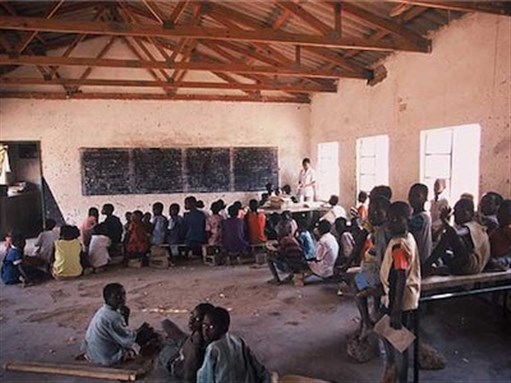As the one-hundred year anniversary of the infamous Sykes-Picot Agreement falls this May 2016, Jadaliyya takes this oppertunity to highlight a two-part article by Sara Pursley published in both English and Arabic.
Using the case study of Iraq, Pursley draws on her own research to highlight what about Sykes-Picot was implemented and not implemented as part of the post-World War I settlment in the Middle East. In doing so, she also sheds light on the historical processes through which the borders of Iraq with Saudi Arabia, Syria, and Turkey were created. Of course, the elephant in the room throughout all contemporary deployments of Sykes-Picot is that of the "artificial state" as a general condition of the region and in which Iraq typically serves is the example par excellence. To this point, Pursley makes a powerful argument about the common assumptions shared by British colonailist, Iraqi nationalists, the Islamic State, and many contemporary analysts, as well as why such framing falls short of the historical record and experience.
In Enlish:
"Lines Drawn On An Empty Map": Iraq`s Borders and the Legend of the Artificial State (Part 1)
"Lines Drawn On An Empty Map": Iraq`s Borders and the Legend of the Artificial State (Part 1)
In Arabic:
خطوط مرسومة على خريطة فارغة: حدود العراق وأسطورة الدولة المصطنعة الجزء الأول
خطوط مرسومة على خريطة فارغة: حدود العراق وأسطورة الدولة المصطنعة الجزء الثاني

















